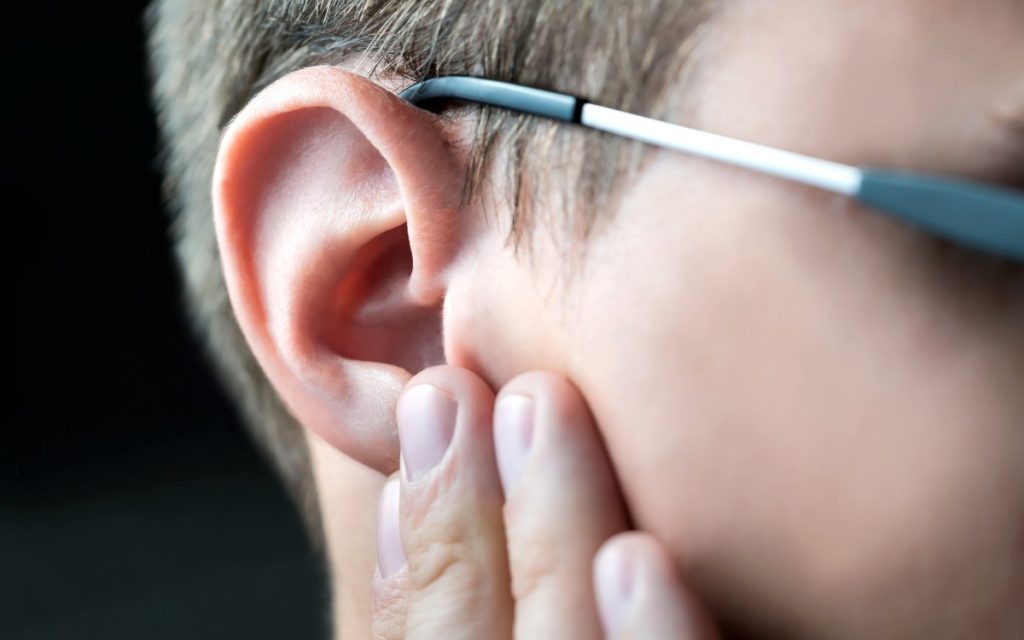More isn’t always better. That’s certainly the case with something called otosclerosis, the medical term for a hearing condition caused by excess bone growth in the ears.
Normally, the bones in your ears (yes, you do indeed have bones in your ears) are tiny, so it doesn’t take much growth to throw off the delicate balance required to enable your hearing. That’s how otosclerosis–via just a small amount of bone growth–can cause hearing loss, tinnitus, and other hearing issues.
Tiny growth on tiny bones
There are over two hundred bones in the human body. Three of them (well, uh, six of them–three on each side) reside in your ears. True, the majority of your ear is composed of cartilage. While the actual bones within are quite tiny, they are essential to your ability to hear. As sound waves enter your ear, these bones vibrate, helping your body translate masses of vibrating air molecules into what we perceive as sound.
The whole operation of hearing is reliant on the size and shape of these tiny bones. If it helps, you can think about these bones (and your ear) as precisely calibrated.
Otosclerosis occurs when one of these bones, the stapes bone, starts exhibiting some extra growth (this is somewhat ironic, as the stapes bone is the smallest bone in the human body). This additional mass, tiny though it may be, is enough to throw off that calibration. The vibrating of your stapes bone is diminished, and as a result, you may experience some trouble hearing.
Symptoms of otosclerosis generally include:
- Hearing loss: This hearing loss may come on gradually, but the rate at which it accelerates can vary considerably. Usually, the more bone growth you experience, the more severe your hearing loss will become.
- Tinnitus: Some people may experience tinnitus–a buzzing or ringing in the ears. Tinnitus may or may not be accompanied by hearing loss.
- Dizziness: Because otosclerosis occurs in the middle ear–which is responsible for balance–some people may experience dizziness as a symptom.
Treatments for Otosclerosis
Otosclerosis is relatively uncommon. So usually, this ear-bone-based ailment is diagnosed in a pretty simple way: a hearing test. Your hearing specialist will check for conductive hearing loss using an audiogram. In more complicated cases, however, an MRI might be needed to confirm a diagnosis.
Once that diagnosis is confirmed, you can get on with the treatment. For most people, treatment may look something like this:
Wait and see: One of the more common approaches to the early stages of otosclerosis is simply to wait and see. In some cases, your hearing loss or tinnitus could stabilize with only minimal disruption to your life. Your hearing specialist will likely want to see how your hearing behaves.
Hearing aid: If your hearing loss starts interfering with your daily life, you may want to consider getting a hearing aid. Even if your stapes bone is a little compromised, a hearing aid can help you maintain or improve your ability to hear the world around you. A hearing aid won’t cure the underlying cause of otosclerosis (that bone growth will still be there), but it can help you deal effectively with the symptoms.
Stapedectomy: In some cases, surgery can be the best possible treatment for otosclerosis. Usually performed as an outpatient procedure, a stapedectomy can remove the excess bone from your ear. After your recovery, this will usually return your hearing to normal (or close to it).
Can I avoid otosclerosis?
There are some known risk factors for otosclerosis, such as pregnancy, genetics, and gender. Pregnant women, for example, are more likely to experience otosclerosis. In fact, women generally are more likely to develop this hearing ailment. Research also suggests that some people simply have a genetic predisposition towards an expanding stapes bone.
Which means that there’s not a whole lot you can do to prevent otosclerosis. However, regular hearing screenings can help you catch this particular ailment at the first sign. As with all hearing loss, early detection means you could have more treatment options open to you in the long run.
What should I do if I think I might have otosclerosis?
When you feel dizzy or hear ringing or need to turn up the radio your first thought likely won’t be otosclerosis. It’s probably not common enough to be top of mind. But any hearing problems you might have are best evaluated by a specialist. So if you’ve been noticing your ears aren’t functioning as well as they used to, for any reason, they’re definitely worth getting checked out. Turns out, the smallest bone in your body can cause some pretty big problems–but there are plenty of solutions.


